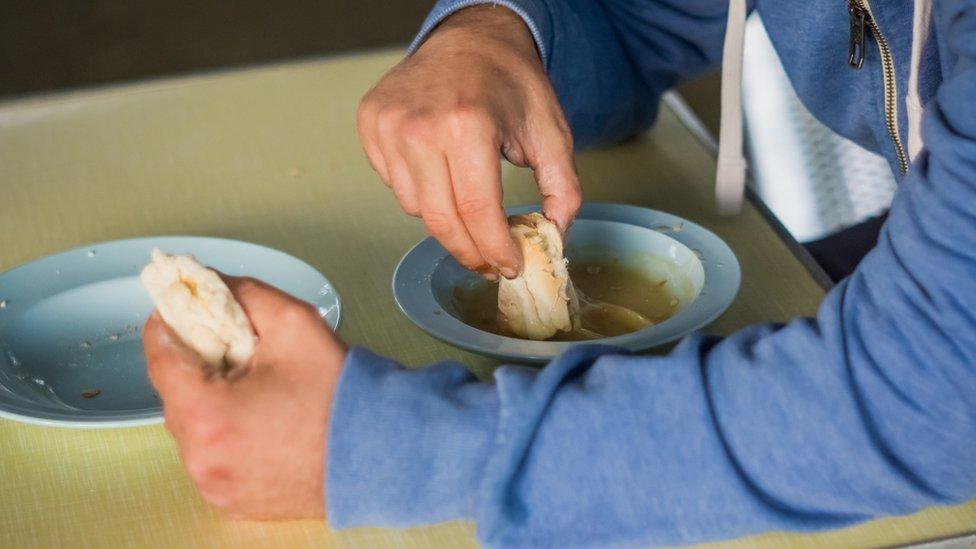Universal credit: Minister bids to restore £20 uplift
- Published
'I'm only paid what they decide minimum wage is'
Stormont's Department for Communities has bid for funding to mitigate the end of a £20 weekly uplift for people claiming universal credit.
The uplift is being withdrawn across the UK on Wednesday.
BBC News NI understands that an initial bid of £55m has been submitted to come from Stormont's October monitoring round.
A briefing paper to Stormont's Communities Committee said it was "vital that support continues".
The department said this was due to ongoing impacts of Covid and rising food and fuel prices.
The UK government has said it has "always been clear" the uplift to universal credit was temporary.
Monitoring rounds are reallocation of spending exercises that take place quarterly.
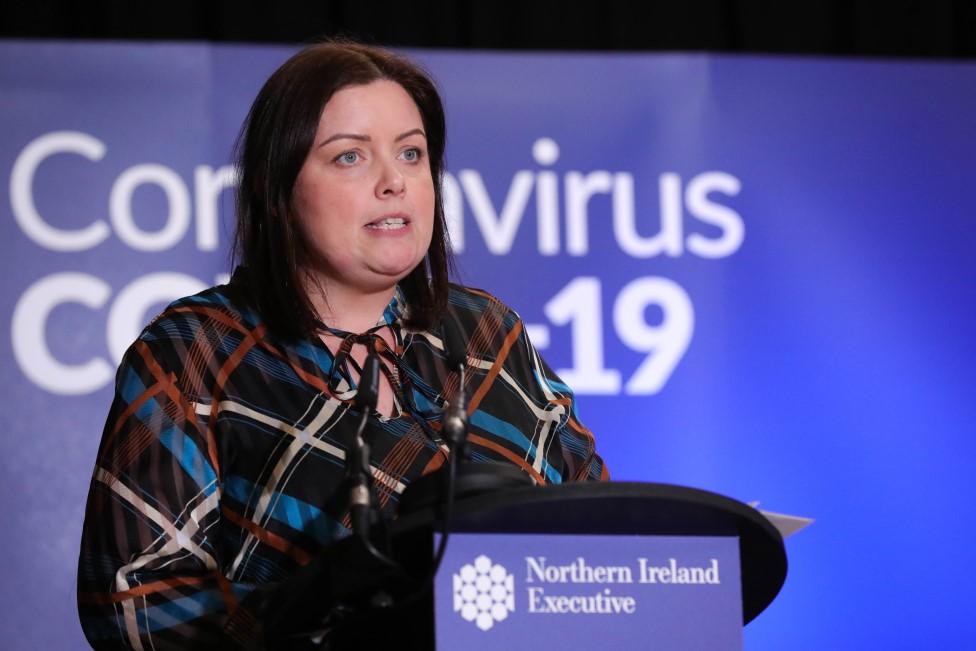
Communities Minister Deirdre Hargey says her department has made a request for funding
Communities Minister Deirdre Hargey previously called on Westminster to reverse the reduction in the uplift and said Stormont departments would struggle to make up the shortfall.
Her department has now said it has made a request for funding, but the move would be "subject to executive agreement".
The briefing paper adds that the Department for Communities will have a "recurring requirement of £108m per year", which will rise to £200m as "people are migrated from legacy benefits to universal credit to maintain the £20-per-week uplift".
A spokesperson for the department said: "The minister has clearly stated that the actions by the British government are outrageous and abhorrent.
"Minister Hargey has prioritised support for the most vulnerable in our society and will continue to do so.
"She has also highlighted that we have to be real about our abilities to mitigate yet again another cut by the Tories."
The spokesperson added that the budget was "not infinite" and that any decision would be a matter for the executive.
Ms Hargey has asked for it to be discussed by the executive on Thursday.
Stormont received an extra £180m from the Treasury in September and that money is yet to be distributed.
The expectation was that most if not all of that money would go on health spending.
SDLP assembly member Mark H Durkan welcomed the move and said it was right the minister had "heeded calls to take action".
"We knew this cut was coming down the line. The department should have laid the groundwork and made preparations before now," he said.
"Nevertheless, action at the 11th hour is better than no action at all. This intervention if approved, will save lives."
The lights at Belfast City Hall were turned out for two hours from 20:00 to protest against the uplift being removed.
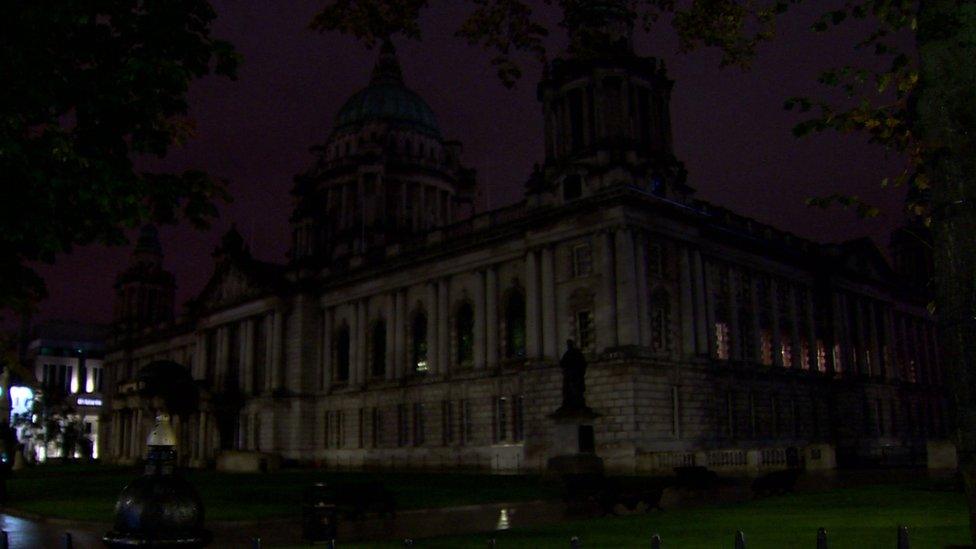
Belfast City Hall was plunged into darkness
"Crushed financially"
People claiming universal credit in Northern Ireland have said they do not know how they will cope after the uplift ends.
There are about 134,000 claimants in Northern Ireland - just over a quarter of them in work.
Deirdre McCausland, a single mother of two from west Belfast, said she worried what the reduction would mean for her family.
"They've brought in a rise of 35% in the gas," she told BBC News NI.
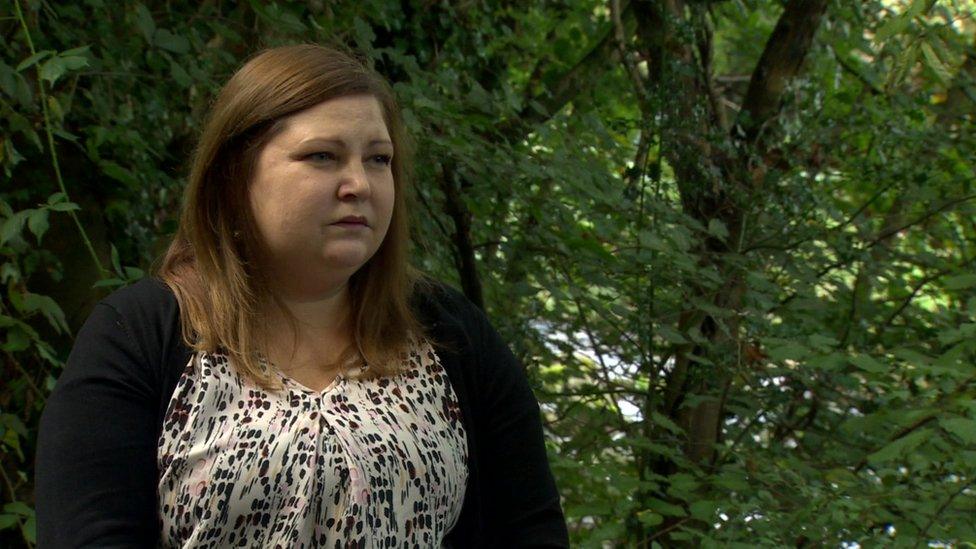
Deirdre McCausland says she fears she will be "crushed financially"
"My tariff on my electric has gone up dramatically.
"How can they even weigh that up, take away the money, but then rise all these costs up and then you still have the uniform costs and the bus passes?
"I just think I'm going to be crushed financially."
Universal credit, which is claimed by more than 5.5 million households in the UK, was introduced to replace six benefits and merge them into one benefit payment for working-age people., external
The £20 top-up - which Chancellor Rishi Sunak said was only a temporary measure to help people through the pandemic - was extended by six months in March, but MPs across the political spectrum, along with charities and campaigners, have called for it to continue beyond the autumn.
A government spokesman added: "It was designed to help claimants through the economic shock and financial disruption of the toughest stages of the pandemic, and it has done so.
"Universal credit will continue to provide vital support for those both in and out of work and it's right that the government should focus on our Plan for Jobs, supporting people back into work and supporting those already employed to progress and earn more."
The heads of government of Northern Ireland, Scotland and Wales have previously called on Boris Johnson to reverse plans to end the £20 uplift.
May 2021 figures from the Department for Communities showed that of those claiming universal credit in Northern Ireland there were:
33,290 single parents
10,830 couples with children
Increases in gas and electricity prices have been announced in the last month as wholesale energy prices have reached an all-time high - a cost which has been passed on to the consumer.
'Not a third world country'
Maria, a single mother of two young children from the greater Belfast area, had to stop working to look after her disabled son.
"They're taking this £20 away at the worst possible time, they should not be removing it at all, they should make it permanent," she told BBC Radio Ulster's Good Morning Ulster programme.
"They're just making the poor people so much poorer."
She said she hoped the government would reconsider its decision and that the NI Assembly "step up and help the people of Northern Ireland".
"This isn't a third world country and we shouldn't have to rely on charities and food banks, there should be enough money there so that everybody can live a comfortable life," she said.
"I don't mean an extravagant life, but I simply mean enough to feed your family and keep your heating on and keep your kids healthy and well."
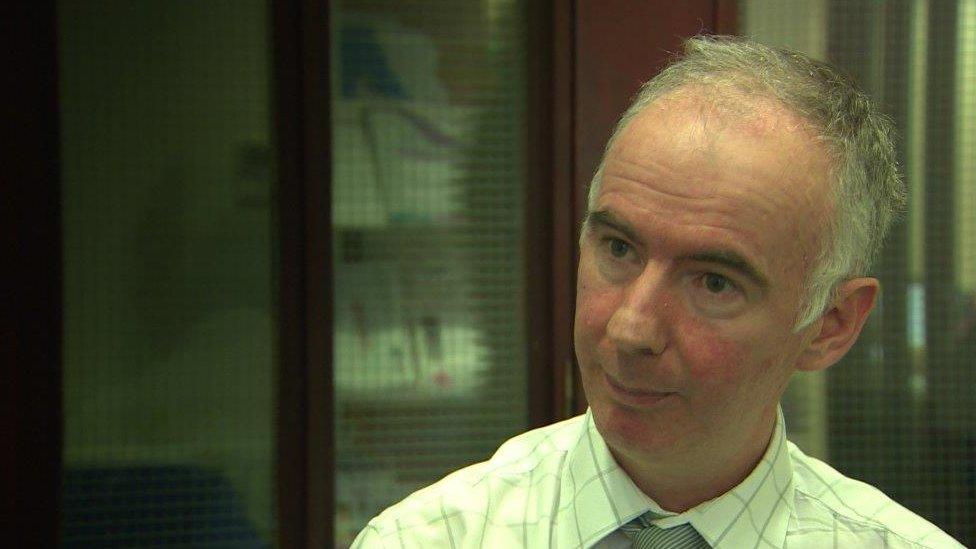
Kevin Higgins from Advice NI said the executive should make the issue a priority
Noyona Chundur, chief executive of the Consumer Council, said compared to UK averages, Northern Ireland households have £103 less discretionary income per week, higher debt levels and a higher proportion have no cash savings.
"Unfortunately, more and more people are having to choose between heating and eating, with Northern Ireland having one of the highest rates of fuel poverty in the UK at 22%," she said.
"Over the last number of weeks we have witnessed price increases from seven of our energy companies.
"The increases in electricity and gas could result in consumers having to find an extra £300 to put towards annual energy costs."
'A cold and hungry winter'
According to the charity Save the Children, between now and early November, more than 83,000 children in over 44,000 households in Northern Ireland will be affected by having universal credit payments reduced by £87 per month or £1,040 a year.
"People we work with tell us they've been relying on this £20 lifeline to buy essentials like food and clothing for themselves and their children," said Peter Bryson of Save the Children NI.
"Without it, tens of thousands more children are facing a cold and hungry winter. And we know the impacts of childhood poverty can last a lifetime."
To highlight the impact of the reduction, the lights in Belfast City Hall will be switched off at 20:00 BST on Wednesday plunging the area into darkness "as a symbol of what many people on the lowest incomes will face", the Women's Regional Consortium has said.
Related topics
- Published7 September 2021
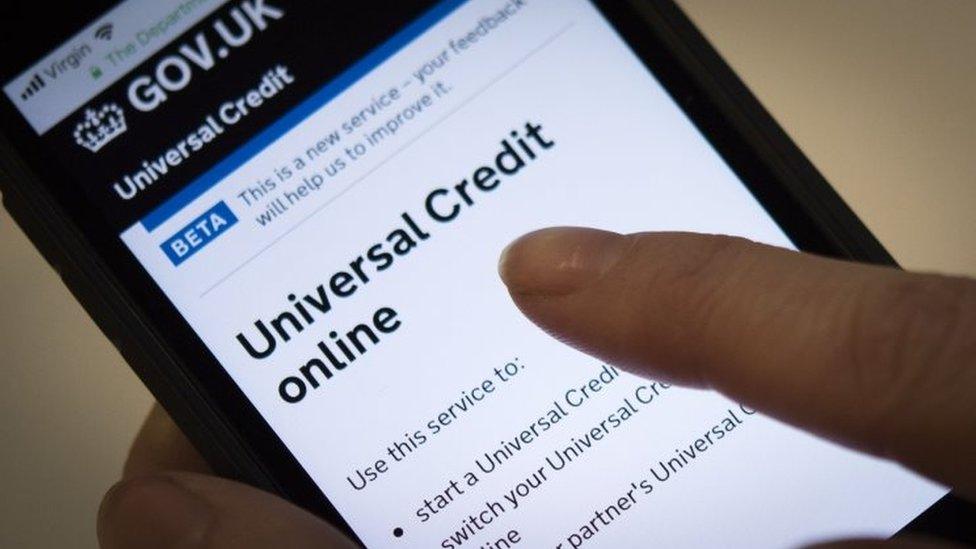
- Published30 August 2021
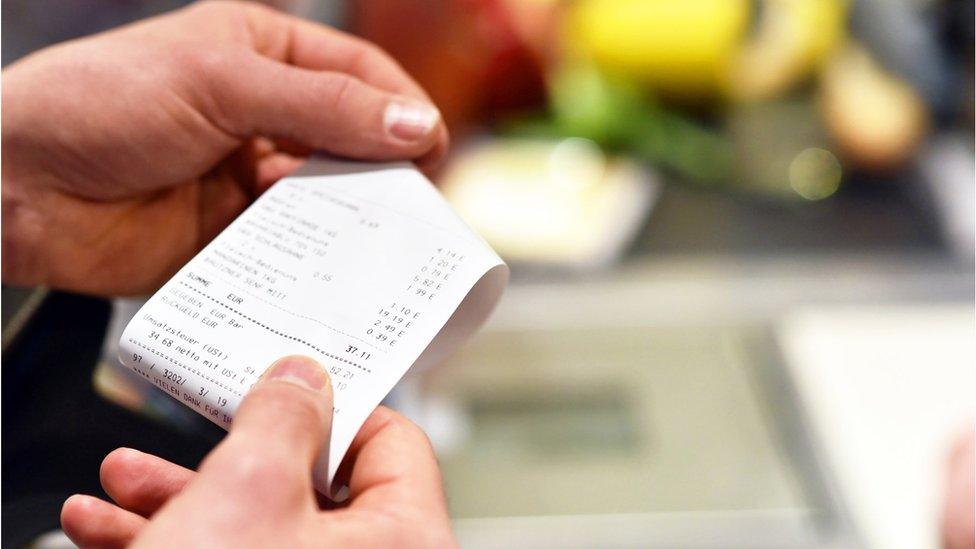
- Published5 August 2021
